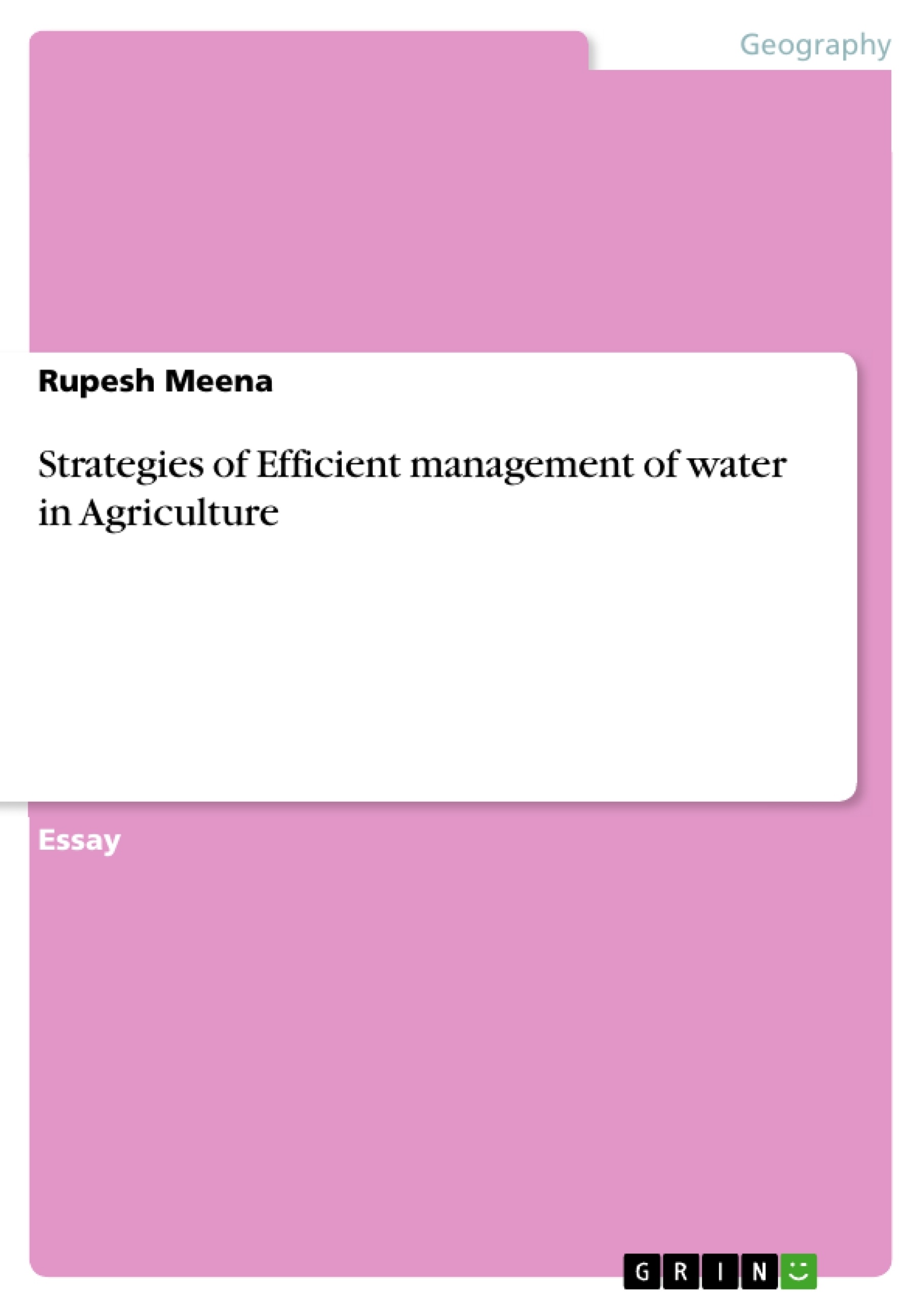Taking into consideration the alarming fact of a water crisis, there is a need to efficient water management to conserve the precious input. This text explains the different strategies for efficient management of water for agricultural use involving: conservation of water, integrated water use and optimal allocation of water.
Water is more crucial to Indian agriculture than is commonly perceived. India’s water resources are under considerable stress as the race between food production and population growth surges relentlessly. With 4 per cent of the world’s water resources and 18 per cent of its population, the country will be hard pressed to meet the water requirements of the various growing sectors. Continual population growth and the predicted impacts of climate change, including shifts in precipitation and glacier melt, makes the water challenge greater.
For better use of water in agriculture in water-limited environments, efforts are needed from different research disciplines: agronomists, plant breeders, plant physiologists, plant biotechnologists, water engineers and others, to develop new approaches in water conservation. For example, is it possible to develop crops that require less water and maintain high yield productivity? Among different approaches water productivity or water use efficiency (WUE) is an efficient approach.
Frequently Asked Questions
What is the main focus of this text on Efficient Water Management?
The text focuses on the crucial role of water in agriculture, especially in India, and the need for efficient water management due to growing population, climate change, and limited water resources. It explores strategies for conservation, integrated use, optimal allocation, and enhancing water-use efficiency (WUE) in agriculture.
What are the main strategies for efficient water management discussed?
The text outlines four main strategies:
- Conservation of Water: In-situ (reducing runoff, enhancing infiltration) and ex-situ (water harvesting in ponds) conservation methods.
- Integrated Water Use: Combining water from different sources like rainwater, surface water, groundwater, and recycled water.
- Optimal Allocation of Water: Allocating water among competing crops based on water availability and growth stages to maximize economic returns.
- Enhancing Water-Use Efficiency: Improving WUE through agronomic practices, mechanical measures, and chemical methods.
What are some agronomic practices to enhance water-use efficiency?
The text mentions several agronomic practices, including:
- Selection of crops and cropping systems based on water availability.
- Tillage practices for moisture conservation (deep tillage, conservation tillage).
- Mulching and crop residue management.
- Direct Seeded Rice (DSR).
- Planting techniques/methods (Broadbed and furrows, ridges and furrows).
- Furrow Irrigated Raised Bed Planting System (FIRBS).
- Rain Water Harvesting.
- Efficient irrigation methods (sprinkler and drip irrigation).
- Weed Control.
- Intercropping.
- Fertilization.
- Varieties: Breeding and selecting water efficient varieties.
What mechanical measures are discussed for water management?
The mechanical measures discussed are:
- Contour Farming: Ploughing and planting along the contour to reduce soil erosion and harvest water.
- Terracing: Creating graduated terrace steps on sloped land to decrease erosion and surface runoff.
What chemical methods are discussed for water management?
The chemical methods discussed are:
- Anti-transparents: Chemicals used to reduce transpiration, including stomatal closing types (PMA, Atrazine), film-forming types (ethyl alcohol), reflectance types (kaolin), and growth retardants.
What is the conclusion of the text?
The text concludes that irrigation should be applied optimally for higher water use efficiency and better yields. It emphasizes the urgent need to adopt water conservation technologies to conserve water and improve the economic standard of farmers. Implementation of different technologies in collaboration is necessary to improve WUE in rainfed ecosystems to increase economic crop production per unit of water.
- Quote paper
- Rupesh Meena (Author), 2016, Strategies of Efficient management of water in Agriculture, Munich, GRIN Verlag, https://www.grin.com/document/337777



